Aspiration and proposal
Forest-ground is a time-evolving proposal of a new learning environment – A re-integration with forest and natural environments that evolves over time with the children. Introducing the idea of growing a Forest-ground would change the way children engage with the idea of schooling – creating a positive impact on a child’s life while preparing them with social skills needed for the uncertain future.
Issue
In Singapore, students learn in an enclosed environment at least 6 hours a day, where they undergo academically driven learning within rigid classrooms. Learning rarely expands beyond the classroom settings while the government works towards cultivating and nurturing creative and innovative young minds in Singapore.
The rigidity of our current educational environment in Singapore has neglected the importance of connecting with nature and enjoying the outdoors. With the lack of interaction with nature and outdoors, children are stumbled with physical and mental health issues such as myopia, obesity, unstable mental well-being and more – which will affect them in the long run.
Our learning environment and framework has changed learning into a compulsory act of being indoors – neglecting the joy of learning and being curious about the outdoors. This has caused children today to suffer from Nature-deficit disorder, a globalized issue.
“An environment-based education movement–at all levels of education–will help students realize that school isn’t supposed to be a polite form of incarceration, but a portal to the wider world.”
– Richard Louv, Last Child in the Woods: Saving Our Children from Nature-Deficit Disorder.
Approach
To compete on the global stage, Singapore needs to nurture creative and innovative young minds beyond today’s successful academically driven learning and move towards educating children on soft skills such as communication, collaboration and critical thinking skills. To achieve that, we need to reinvent and reimagine the kind of schooling environment that children learn and grow up in, especially through the first 6 years of formal education in Singapore.
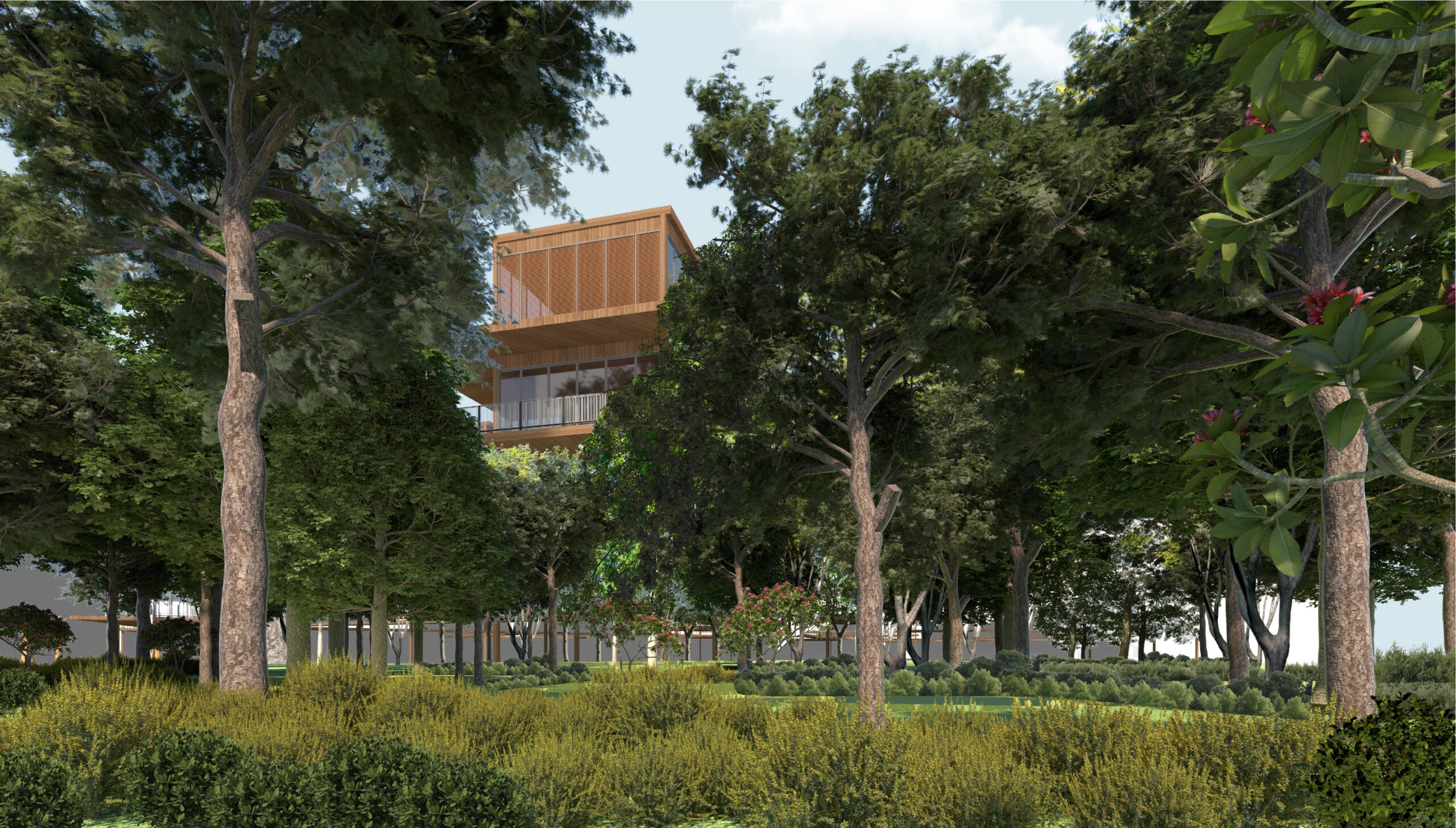
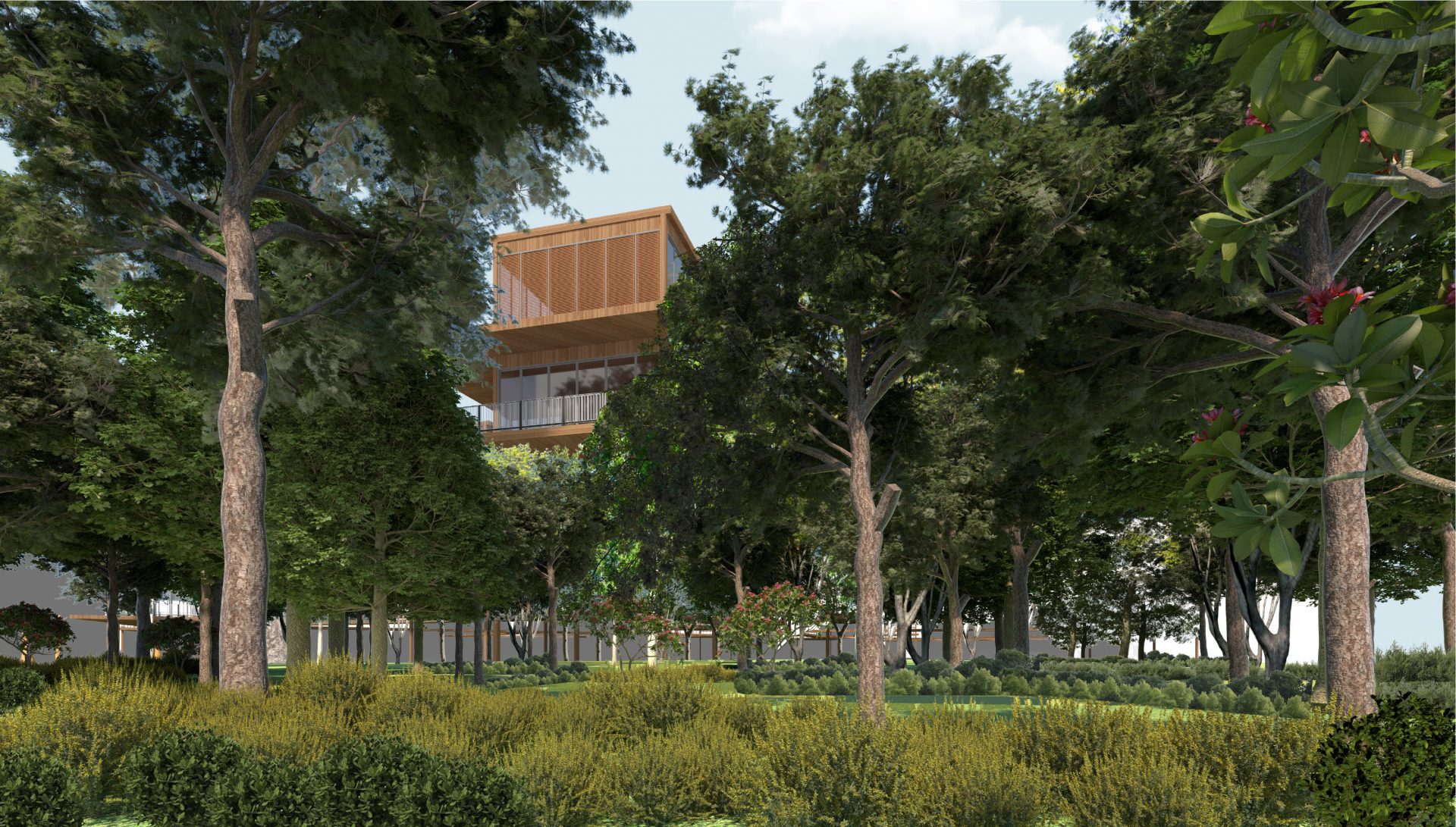
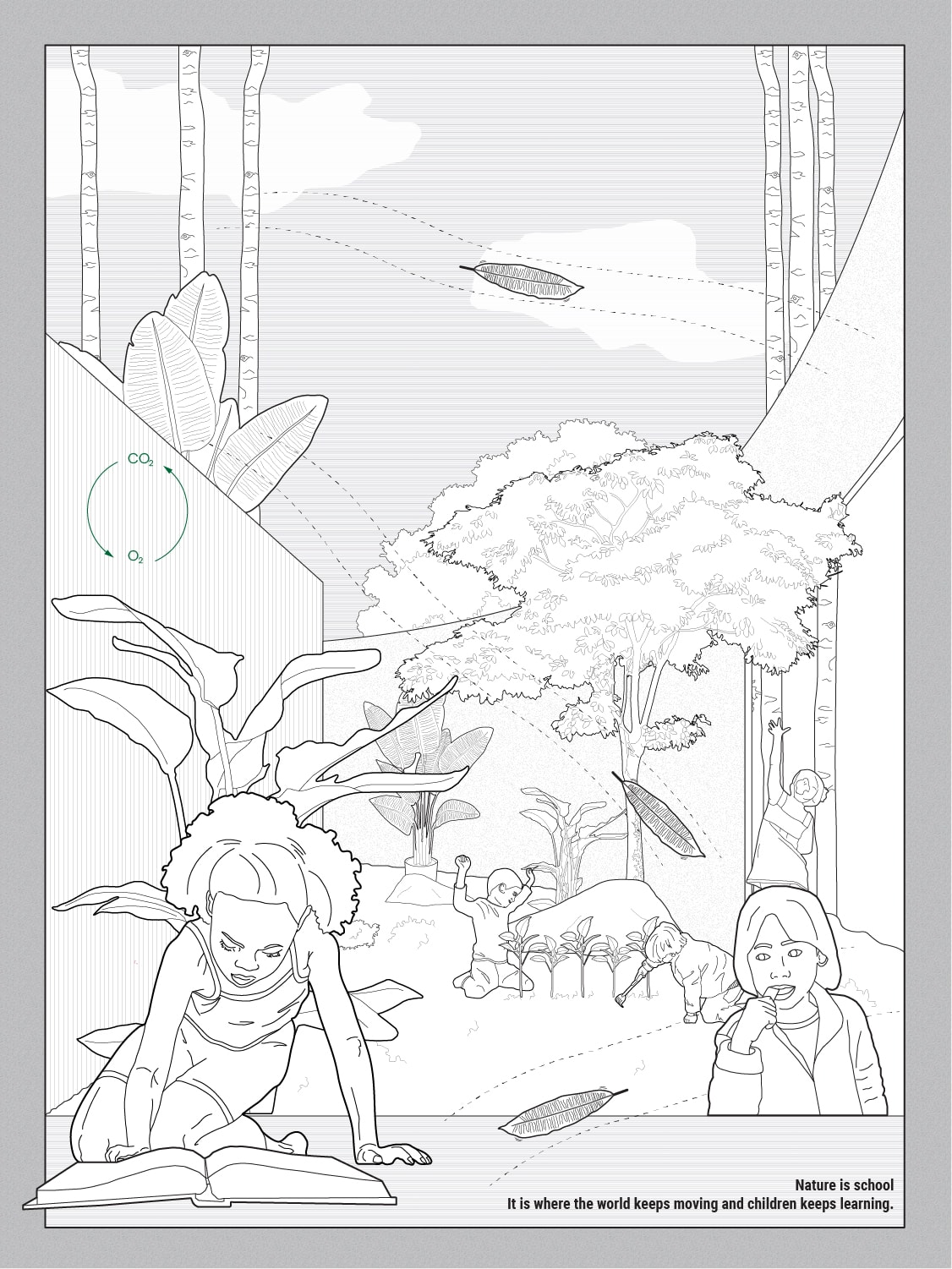
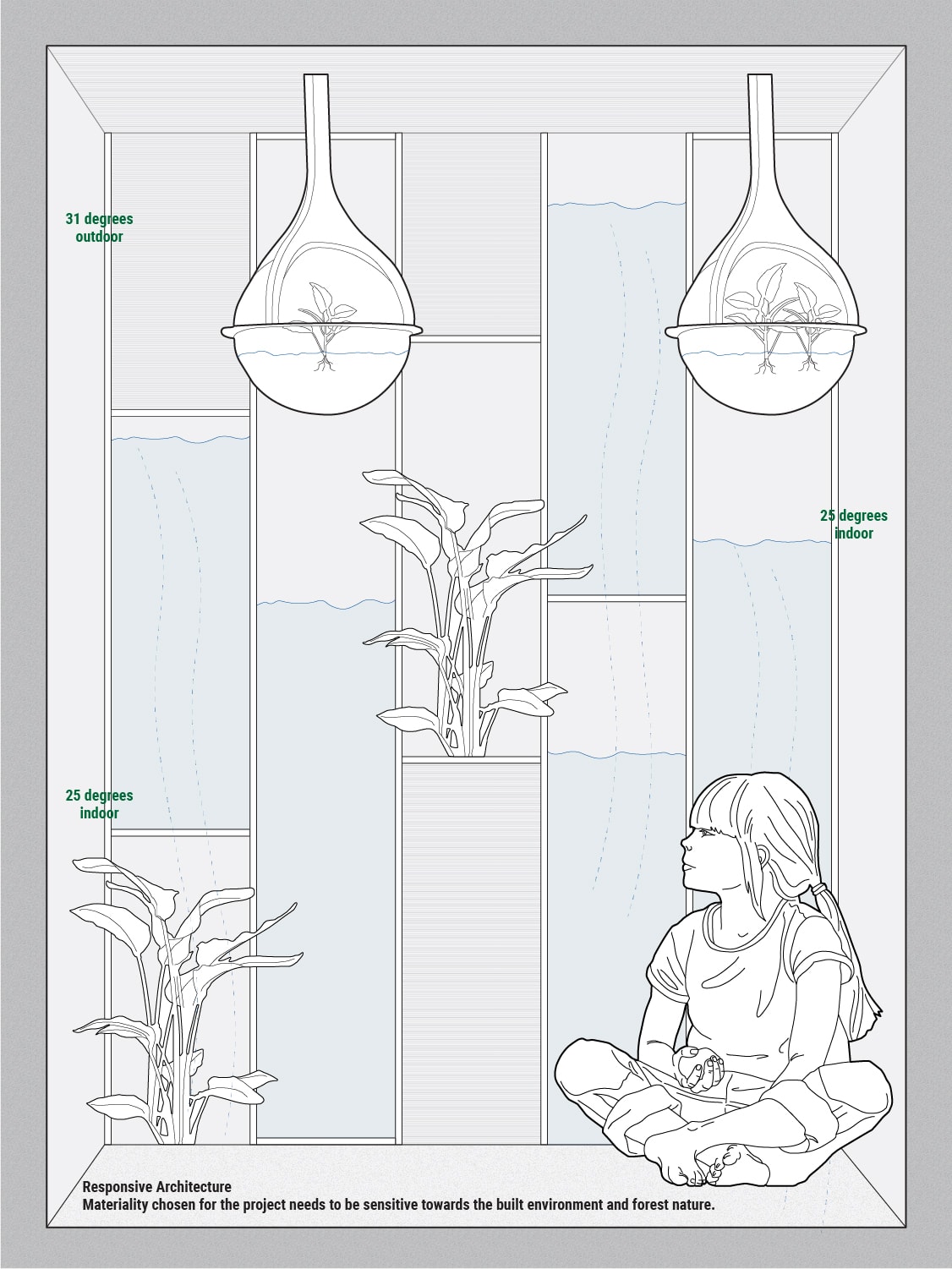
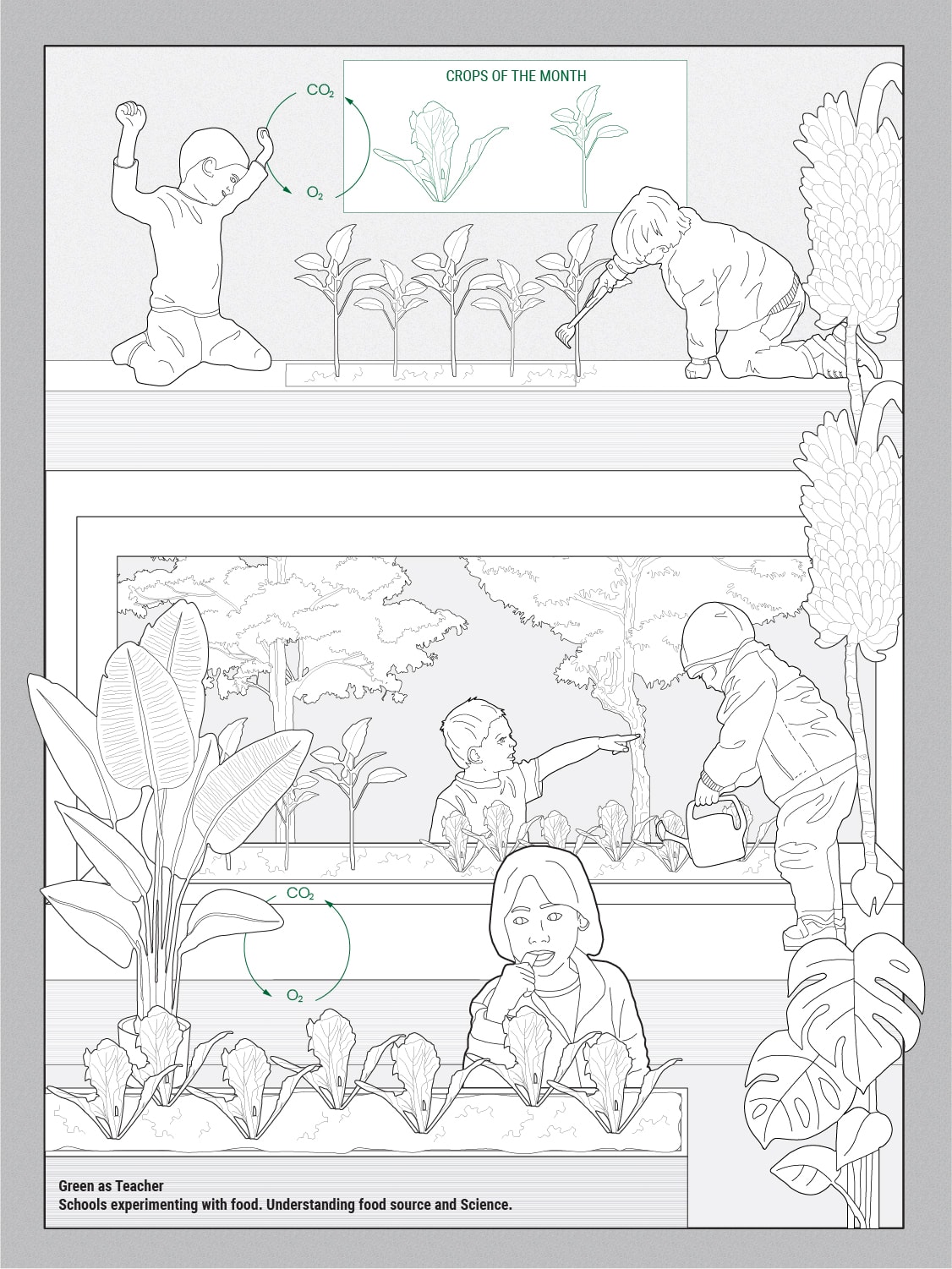
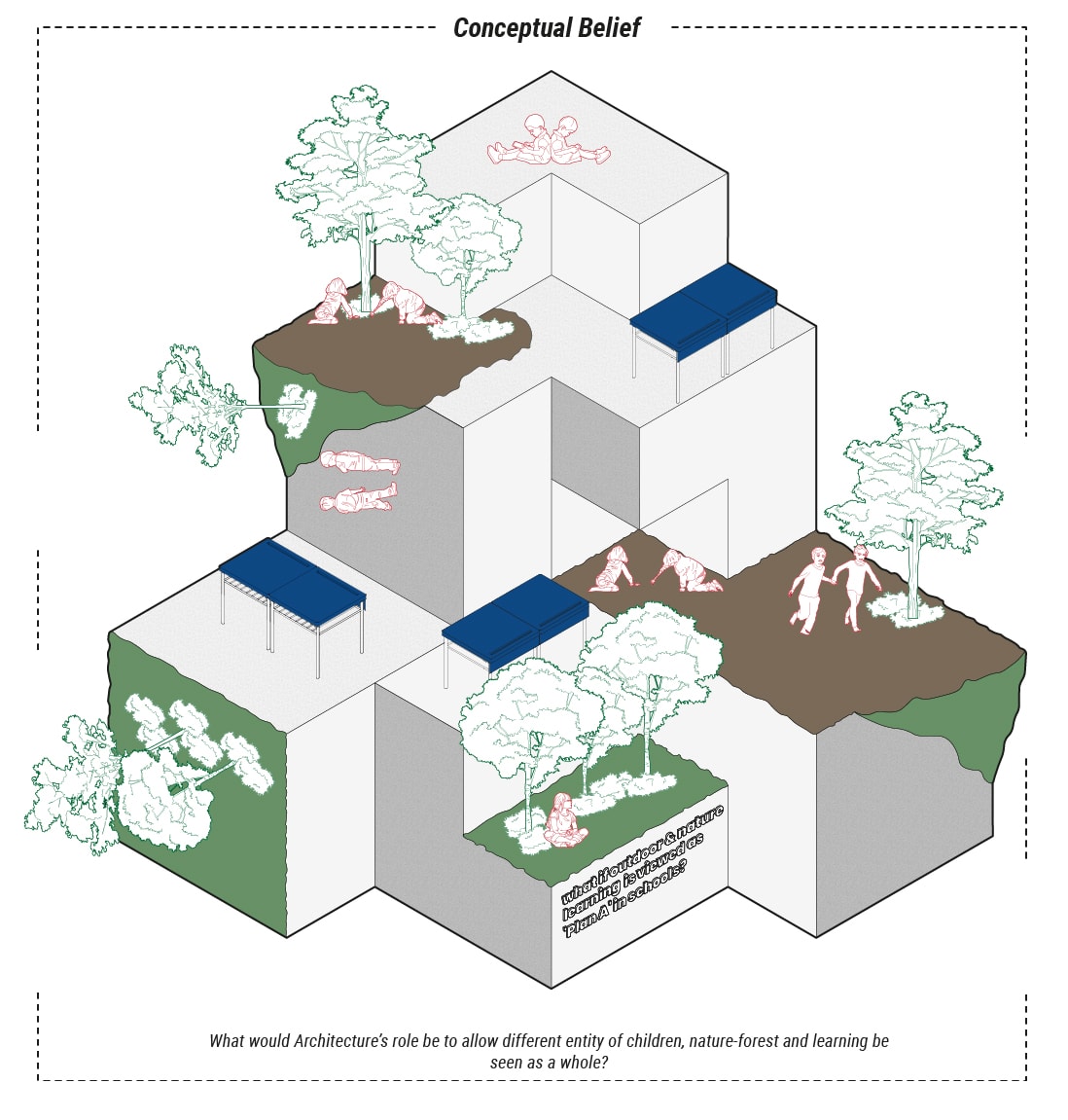
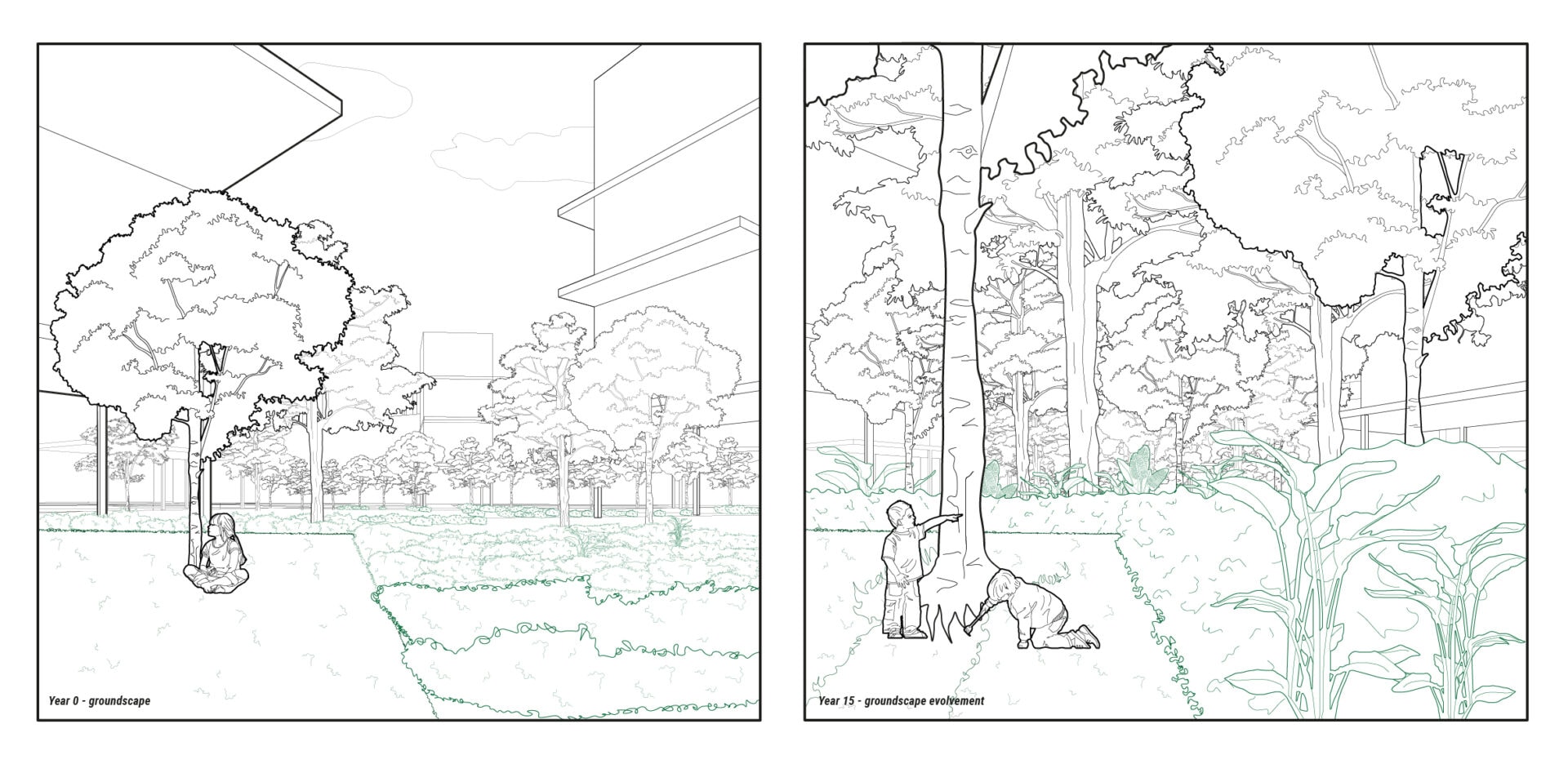
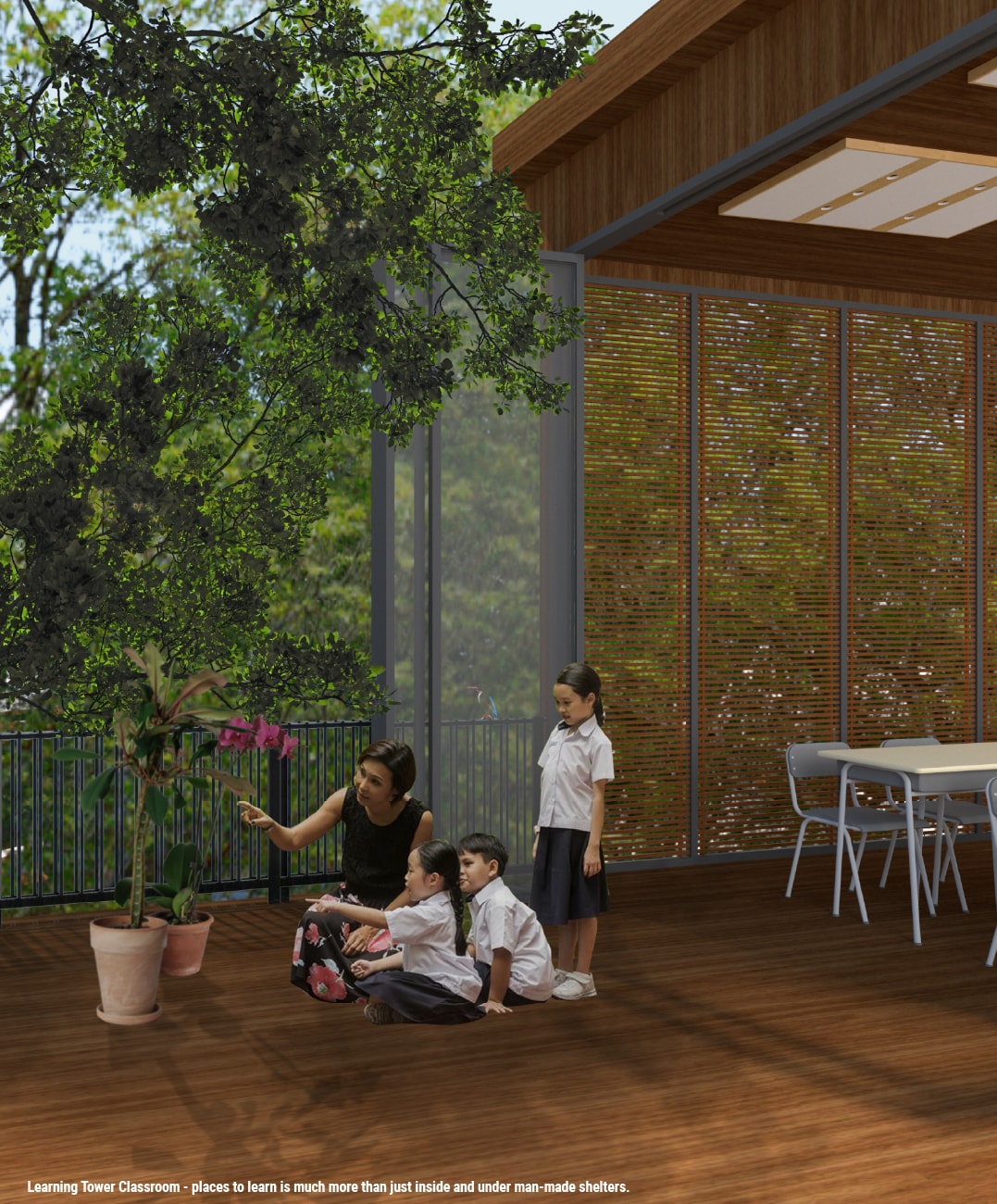
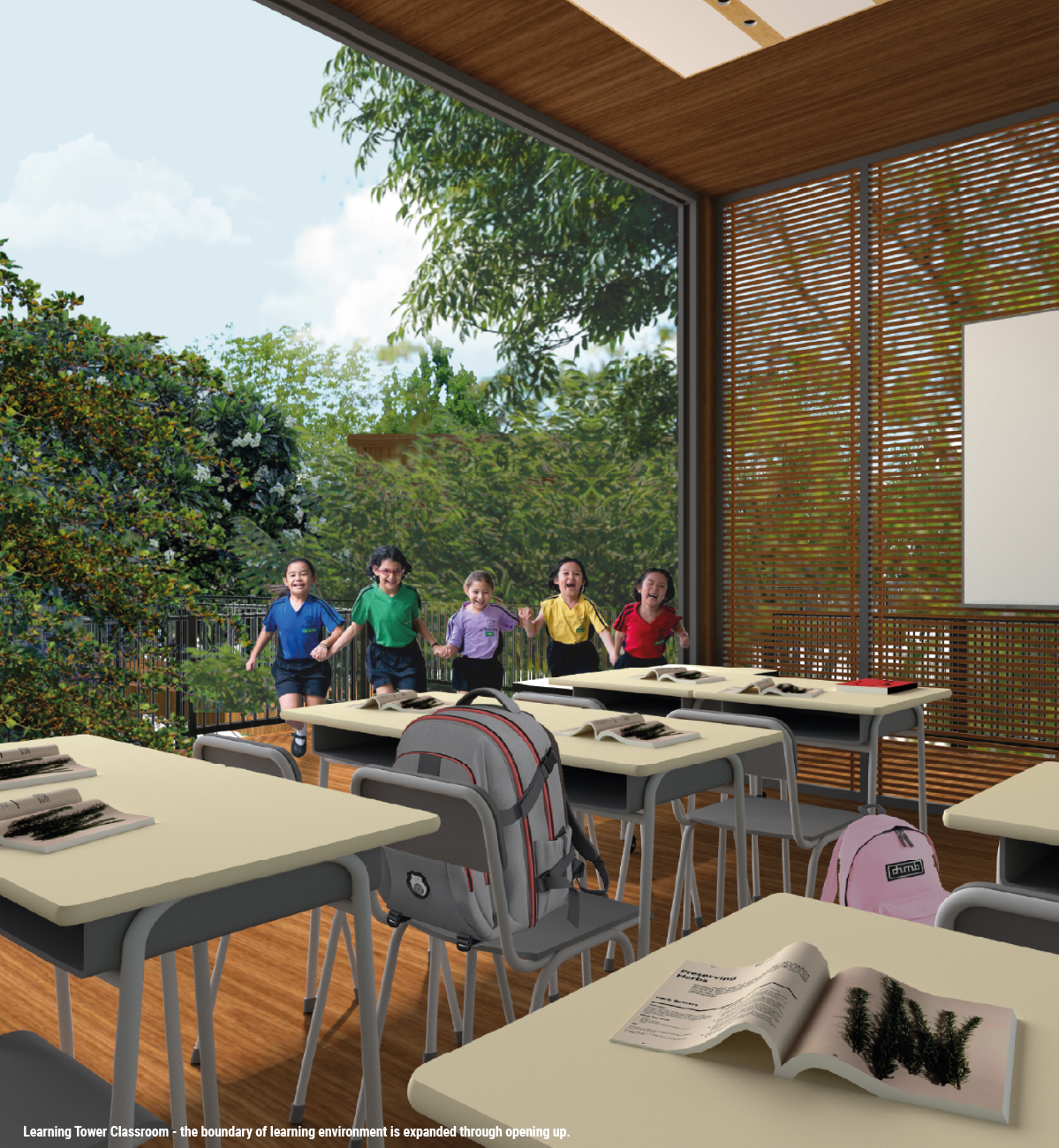
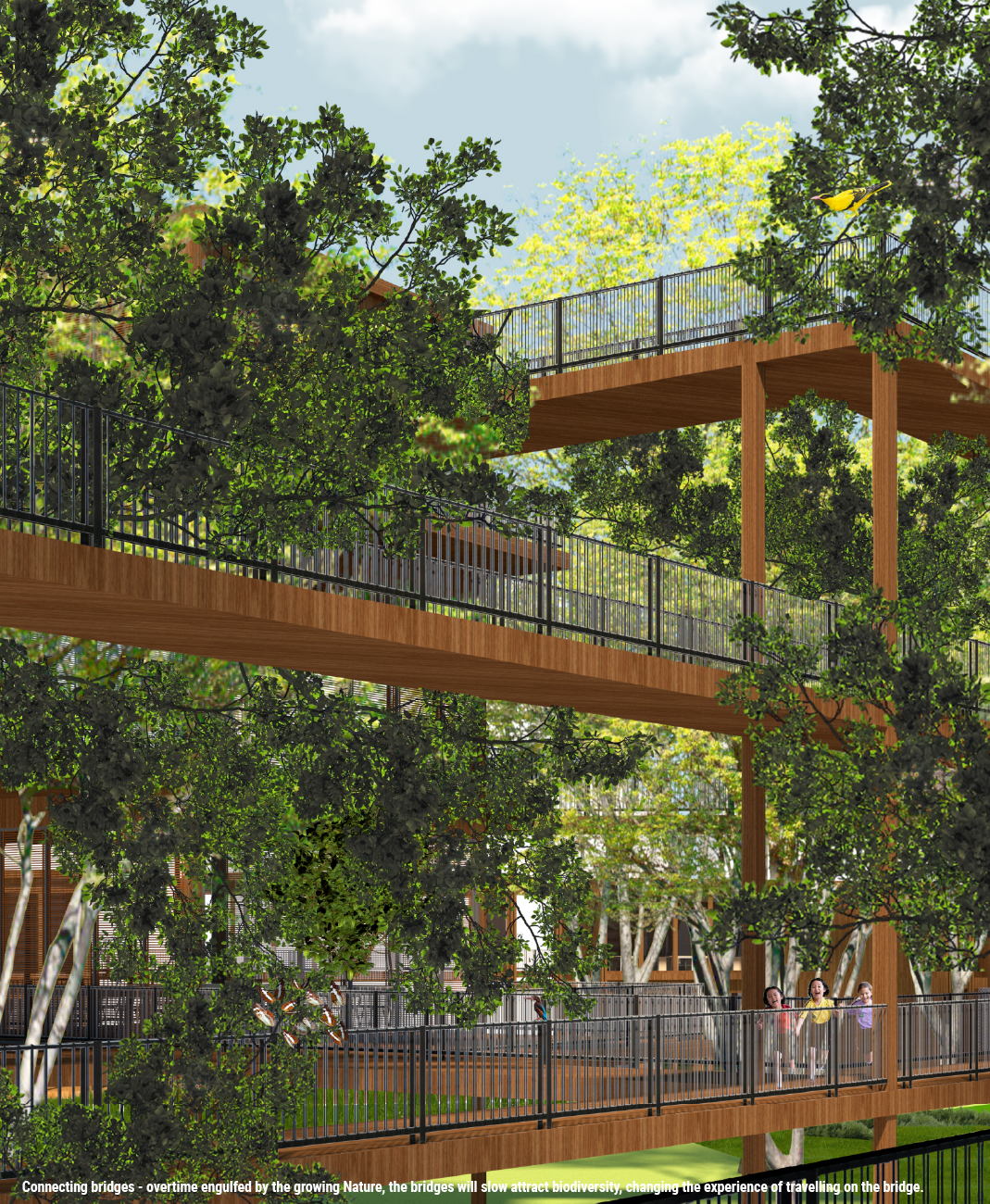
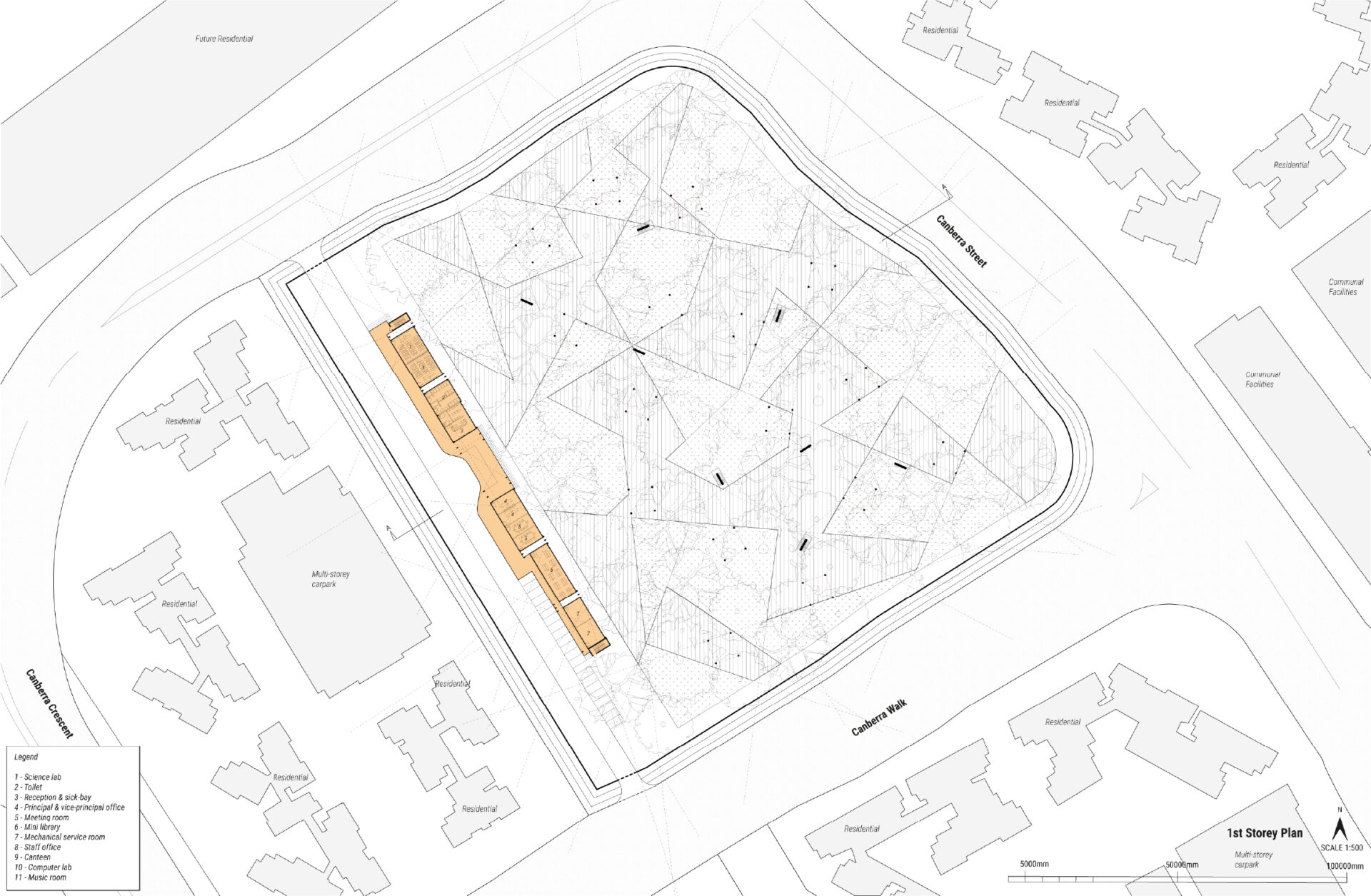
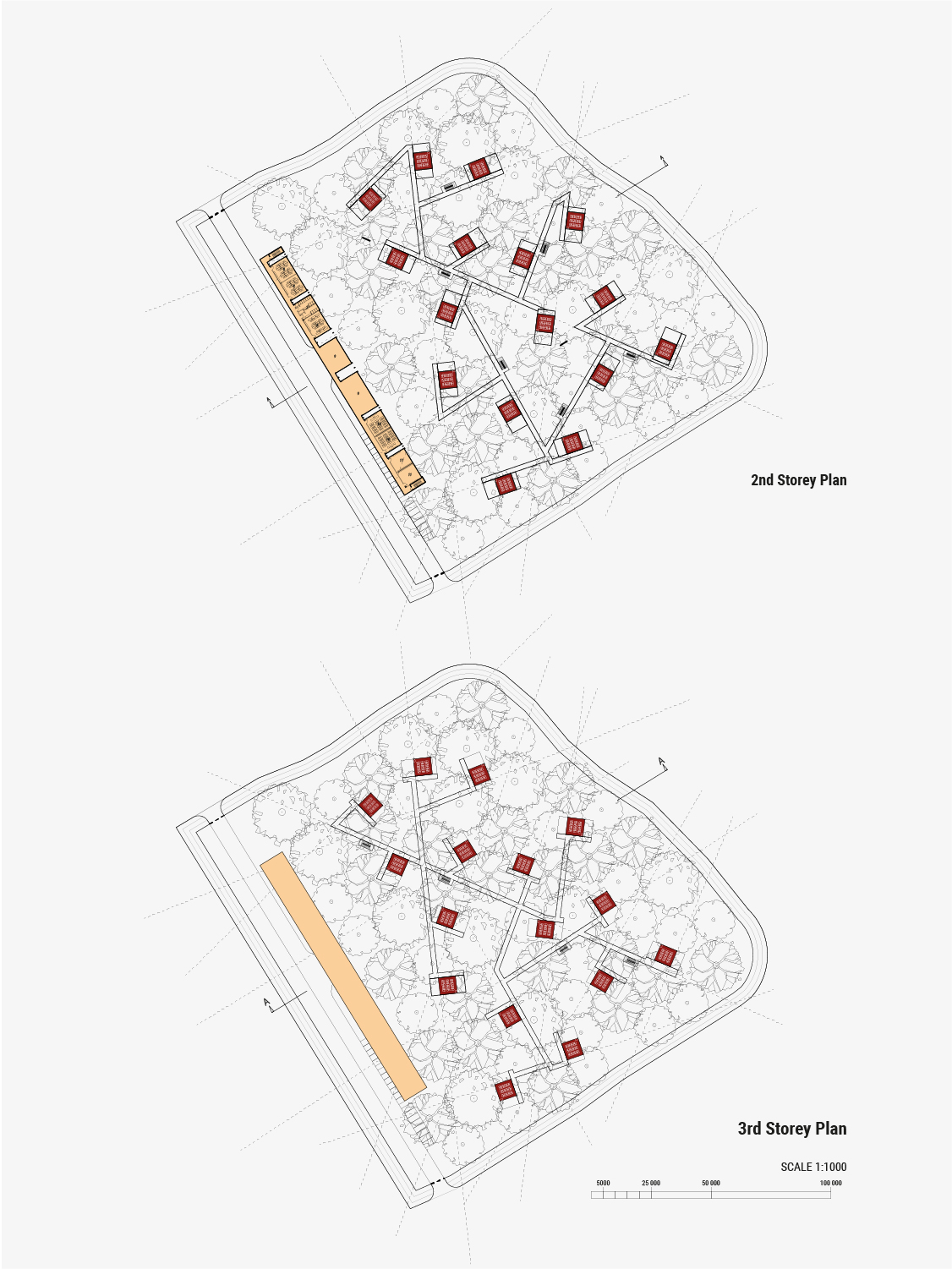

Supervisor's comments:
Singapore’s rapid transition from fish farms to microchips has had many impacts on the lives of our youngest residents. In identifying a phenomenon called “Nature Deficit Disorder” this project undertakes a radical re-think of the typical MOE (ministry of education) primary school. By tackling the problem head-on (as opposed to creating a remote nature-retreat) the design seeks to redress the notion of holistic learning within the city. The project explores notions of urban contribution, reversing the roles of the built vs the natural environment and embraces the concept of an evolving nature that grows with and around the students and their school.
- Adj. Assoc. Prof. Hans Brouwer